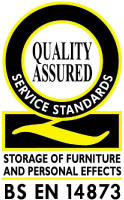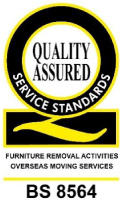A quick guide to paying bills and banking in Spain.
Paying Bills
The typical bills for Spanish homes are;
- Local Property Tax
- Rubbish Collection Tax
- Community Fees (privately shared land only)
- Electricity & Gas
- Water
- Telephone/Broadband
Property Tax & Rubbish Collection Tax
Once you have signed the deed on your Spanish property, the Public Notary will inform your local town hall that you are now the legal owner. The process then allocates the Local Property Tax (I.B.I.) for the property in your name and issues the first bill. The process can take several months but you can continue to live in the property and use public services during this time. Notifications will be sent direct to the property.
Once it is done, you can set up payment via direct debits for property tax and rubbish collection.
Community Fees
Community fees are applicable for gated/private communities, apartments, etc. These fees are set by the management company covering things like general maintenance, landscaping, emergency repairs. These will be stipulated in the contract when buying your property.
Community fees are most commonly paid by direct debit.
Electricity & Gas
There are two types of provider in Spain, the open market (mercado libre) or the regulated market (mercado regulado). Most energy providers in Spain typically operate in both markets but are required to operate under a different name in each market.
Gas is not as common in Spain, in general most Spanish homes use only electricity and very few Spanish towns have mains gas supplies, instead those opting for gas use bottled deliveries. If you are using gas, you’re required to check gas appliances for safety once a year.
The most common form of paying fuel bills in Spain is direct debit.
It’s worth noting that Spanish fuel companies don’t enjoy a great reputation for customer service and one of the chief complaints is billing. To avoid overpayment, check your bills regularly. Bills are most commonly issued monthly or bi-monthly in Spain.
Water
Water bills are normally issued monthly or quarterly. Similar to the UK, there is no open market, each area/city has one water provider which will be either privately owned, state run or a mix of the two. Water rates can vary widely from region to region. Water rates are also subject to change due to demand and availability (typically more expensive during the drier months).
Most providers will require a direct debit to set up an account.
Telephone & Broadband
There are a number of landline and broadband providers in Spain. Like telecom providers in the UK, not all companies operate in all regions. Prices do vary so shop around for the best deals.
All services require direct debit payments to be set up when opening an account.
Setting Up Payment
To open an account for most utilities you’ll need to provide;
- Photo ID
- Your NIE number
- Your bank details
- Proof of address
Please note; many utilities (particularly state services) require payment through a Spanish bank account. This is slowly changing but in many cases having a Spanish account can make things a little easier.
Spanish citizens and foreign residents are required by law to have an identification number, or Número de Identificación de Extranjero. There are a number of online services that provide help to apply for an NIE.
Banking In Spain
You’re not legally required to have a Spanish bank account to be a resident, but in some instances it can be easier setting up payments through a localised bank. Most Spanish bank accounts aren’t free and while costs are low, there are charges for basic services you might not be used to being charged for in the UK.
Some of the major Spanish banks offer non-resident accounts specifically for foreign residents and have English speaking telephone banking services. Smaller branches do not always have English speaking staff.
How To Open A Bank Account
Accounts usually take 1 – 5 days to set up and cards and documents typically arrive within 2 weeks.
To open an account in Spain you’ll be asked to provide;
- Photo ID
- NIE Number
- Proof of address
- Proof of employment (employment contract, unemployment documentation, student card)
Non-Spanish documents may need to be officially translated and/or authenticated with an Apostille stamp.
An Apostille is an official government certificate added to documents being presented in a foreign country.
Ready to start planning your move? Get a free quote.
Payments
Direct Debit
Referred to as SEPA debit in Spain, direct debit is by far the most common way to pay bills. Many services including utilities won’t allow you to open an account without first setting up a direct debit.
Cheques
Cheques are rarely used in Spain and many companies, services and individuals won’t accept payment by cheque. Where cheques are accepted, most banks charge a percentage of the amount for processing the transaction, which means for larger cheques the commission can be considerable.
Online Banking
Online banking is increasingly common. Many foreign residents living in Spain prefer to use an international bank or bank from their country of origin. However, it’s worth noting that many Spanish companies will ask for payment via a Spanish bank. Digital banking is an easy way to set up direct debits and keep an eye on bills and transactions (some Spanish service providers don’t have the best reputation for accuracy or customer service).
All the above information was correct at the time of writing. Spanish legislation is liable to change and we recommend you check with the correct Spanish authorities and service providers for the latest details.
Spain’s healthcare system is widely regarded as one of the best in the world. Waiting times are low, the standard of hospitals and care is considered very high. It is split between the state system and private healthcare with many facilities operating both under slightly different guises.
Do we need health insurance?
Spain does have a state founded health system, similar to the UK, however some procedures require further health insurance or private healthcare. Having your own health insurance can also help avoid waiting times for procedures, although it’s worth noting, Spanish hospital waiting lists are a fraction of those in the UK.
Do we need to register?
You must be registered on El Padrón to be eligible for Spanish healthcare. El Padrón is Spain’s population register and proves whether you are a full-time resident.
There are several criteria, any one of which will make you eligible for the Spanish healthcare system;
- You must have been living in Spain for 5 years.
- Be paying directly into the public health insurance scheme, Convenio Especial.
- Be either employed or self-employed and make social security contributions in Spain.
For those working as an employee, contributions are deducted from your wages.
You will also need a Spanish National Insurance Number (NIE) in order to make payments. You will most likely have had to secure your NIE in order to purchase property.
To obtain your Spanish Social Security Number you need;
- Valid photo ID such as a passport, ID card or driver´s license.
- Residency certificate.
- Proof of address registration.
Once you have your social security number, the next step is to apply for a health card or TSI (Tarjeta Sanitaria Individual).
All the above information was correct at the time of writing. Spanish legislation is liable to change and we recommend you check with the correct Spanish authorities and service providers for the latest details.
Ready to start planning your move? Get a free quote.
Having Spanish citizenship allows you to live in Spain permanently, gives you eligibility to vote, entitles you to a Spanish passport and also makes you an EU citizen.
If you weren’t born a Spanish citizen or have a Spanish parent, there are four ways to apply for Spanish citizenship;
- By Residency
- By Option – Through parents that have become Spanish citizens
- By Descent – Through Spanish grandparents
- By Marriage – To a Spanish citizen
By Residency
There are several set terms of residency required to become a Spanish citizen, depending on your circumstance;
- Living in Spain with a residence permit, uninterrupted for 10 years.
- If you arrive with refugee status, the period of residency is 5 years.
- 2 years uninterrupted residency if you come from Portugal, the Philippines, South America, Equatorial Guinea.
- Have been married to a Spanish national and lived in Spain for 1 year.
There are two exams to pass before attaining citizenship;
- Spanish language test.
- Spanish cultural test.
Your records will then be checked for ‘civic behaviour’ which could take into consideration things such as late tax payments, criminal records, police reports.
Documents required are;
- Pass certificates for both citizenship exams.
- Passport and NIE number.
- Resident register (from El Padron).
- Proof of sufficient economic means to remain in Spain.
- ID of your spouse and marriage certificate (if applicable).
- If you later want your children to be granted Spanish citizenship by option, you should also include their birth certificates.
The process can take up to 2 years.
By Option
If you are not a Spanish national by birth, once you have gained Spanish citizenship, you can then apply for your children to also become Spanish citizens. Your children must be under the age of 18 at the time you were granted citizenship.
- Before the age of 14, citizenship can be decided by the parent or guardian.
- Between the ages of 14 – 18, the child can decide if they want citizenship.
- Once a child has turned 18, they have a further 2 years in order to apply for citizenship.
The process generally takes between 6 – 14 months.
By Descent
Grandchildren and in some cases great-grandchildren of Spanish citizens can apply for Spanish citizenship if they meet certain criteria which include;
- Grandchildren of Spanish nationals who left the country and obtained Citizenship of the country they moved to; hence losing the Spanish Citizenship before their children were born.
- Grandchildren of Spanish women who were born in Spain and married to non-Spanish individuals before the 1978 Constitution came into force.
The process generally takes between 6 – 18 months.
By Marriage
Anyone married to a Spanish national and has lived in Spain for a minimum of 12 months can apply for Spanish citizenship.
- You will need to pass the two Spanish citizenship exams (language and cultural).
- Have a valid passport from your country of origin.
- Undergo a police background check.
- Have a marriage certificate and proof of residence for 12 months.
- Demonstrate proof of financial means to live in Spain.
The process can take up to 2 years.
All the above information was correct at the time of writing. Spanish legislation is liable to change and we recommend you check with the correct Spanish authorities and service providers for the latest details.














